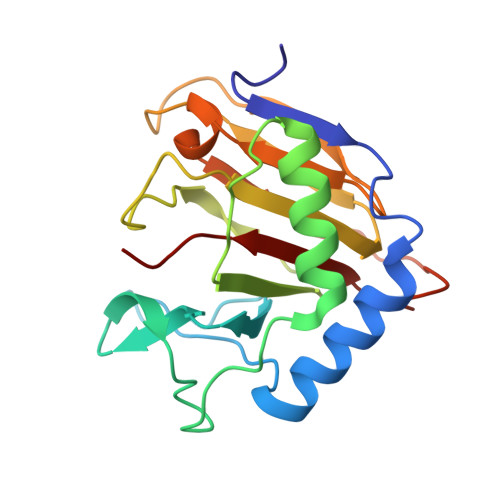Rhein Inhibits AlkB Repair Enzymes and Sensitizes Cells to Methylated DNA Damage.
Li, Q., Huang, Y., Liu, X., Gan, J., Chen, H., Yang, C.G.(2016) J Biological Chem 291: 11083-11093
- PubMed: 27015802
- DOI: https://doi.org/10.1074/jbc.M115.711895
- Primary Citation of Related Structures:
4RFR - PubMed Abstract:
The AlkB repair enzymes, including Escherichia coli AlkB and two human homologues, ALKBH2 and ALKBH3, are iron(II)- and 2-oxoglutarate-dependent dioxygenases that efficiently repair N(1)-methyladenine and N(3)-methylcytosine methylated DNA damages. The development of small molecule inhibitors of these enzymes has seen less success. Here we have characterized a previously discovered natural product rhein and tested its ability to inhibit AlkB repair enzymes in vitro and to sensitize cells to methyl methane sulfonate that mainly produces N(1)-methyladenine and N(3)-methylcytosine lesions. Our investigation of the mechanism of rhein inhibition reveals that rhein binds to AlkB repair enzymes in vitro and promotes thermal stability in vivo In addition, we have determined a new structural complex of rhein bound to AlkB, which shows that rhein binds to a different part of the active site in AlkB than it binds to in fat mass and obesity-associated protein (FTO). With the support of these observations, we put forth the hypothesis that AlkB repair enzymes would be effective pharmacological targets for cancer treatment.
- From the Laboratory of Chemical Biology, State Key Laboratory of Drug Research, Shanghai Institute of Materia Medica, Chinese Academy of Sciences, Shanghai 201203, China.
Organizational Affiliation:


















